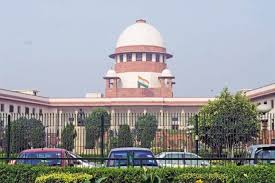Consumer Protection Act, 1986 – Section 2(d) – Consumer – Commercial Purpose – Burden of Proof – Exclusion Clause – Carve Out Clause – Concurrent findings of facts – No interference – Appeal by OP – The Supreme Court considered the maintainability of complaints under the Consumer Protection Act, 1986, specifically addressing whether a complainant qualifies as a ‘consumer’ when services are obtained for a commercial purpose.
The Court emphasized the burden of proof and the manner in which technical pleas raised by service providers should be adjudicated. It clarified that the service provider bears the burden of proving that services were availed for a commercial purpose, failing which the complainant remains within the ambit of consumer protection laws.
The Court highlighted the three-part definition of a consumer, delineating the onus of proof for each component. It stressed that if the service provider succeeds in proving a commercial purpose, the onus then shifts to the complainant to demonstrate that the service was exclusively for earning livelihood through self-employment.
However, in the absence of evidence to substantiate claims made by the service provider, the Court held that mere pleadings without proof are insufficient. The judgment underscores the consumer-friendly nature of the legislation and the need for service providers to fulfill their burden of proof to exclude complainants from the purview of consumer protection laws.
However looking to the concurrent findings of facts against OP by all three lower for a – Supreme Court decline to give relief to petitioner OP. (Para 20, 23)
SUPREME COURT OF INDIA
2024 STPL(Web) 350 SC
[2024 INSC 403]
Shriram Chits (India) Private Limited Earlier Known As Shriram Chits (K) Pvt. Ltd. Vs. Raghachand Associates
Civil Appeal Nos. of 2024 (@ Special Leave Petition (Civil) No. 15290 OF 2021) With Civil Appeal No.____ ____ of 2024 (@Special Leave Petition(Civil) No. 16430/2021) WITH Civil Appeal No.____ ____ of 2024 (@Special Leave Petition(Civil) No. 16513/2021) With Civil Appeal No.___ _____ of 2024 (@Special Leave Petition(Civil) No. 15827/2021) With Civil Appeal No.___ _____ of 2024 (@Special Leave Petition(Civil) No. 16811/2021) With Civil Appeal No.___ _____ Of 2024 (@Special Leave Petition(Civil) No. 16718/2021) With Civil Appeal No.____ ____ OF 2024 (@Special Leave Petition(Civil) No. 16815/2021) And Civil Appeal No.___ _____ of 2024 (@Special Leave Petition(Civil) No. 15489/2021)-Decided on 10-05-2024
https://stpllaw.in/wp-content/uploads/2024/05/2024-STPLWeb-350-SC.pdf







